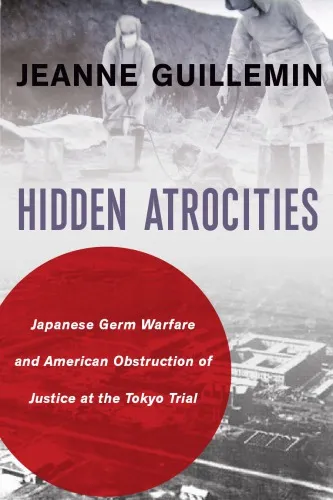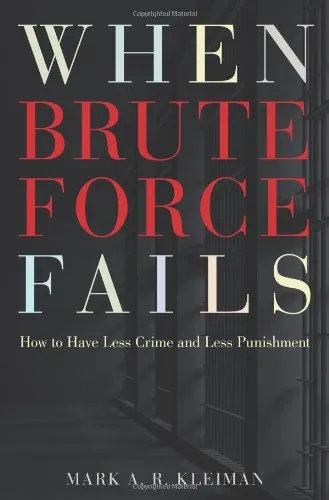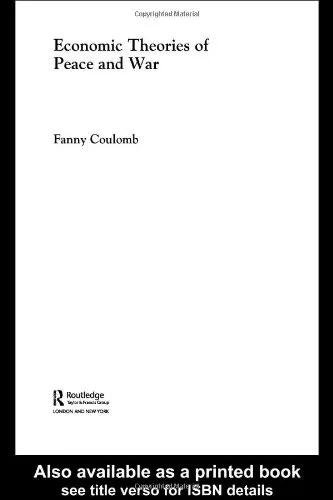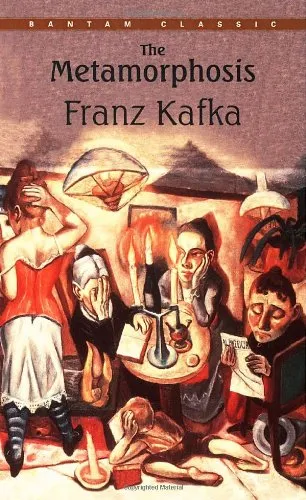Hidden Atrocities: Japanese Germ Warfare and American Obstruction of Justice at the Tokyo Trial
4.2
بر اساس نظر کاربران

شما میتونید سوالاتتون در باره کتاب رو از هوش مصنوعیش بعد از ورود بپرسید
هر دانلود یا پرسش از هوش مصنوعی 2 امتیاز لازم دارد، برای بدست آوردن امتیاز رایگان، به صفحه ی راهنمای امتیازات سر بزنید و یک سری کار ارزشمند انجام بدینکتاب های مرتبط:
معرفی اجمالی کتاب
کتاب "Hidden Atrocities: Japanese Germ Warfare and American Obstruction of Justice at the Tokyo Trial" نوشته جین گیومن در مورد جنایات کمتر شناختهشده جنگ جهانی دوم توسط ارتش ژاپن و رفتار نظام قضایی آمریکا پس از جنگ است که به عنوان یک مانع بر سر راه عدالت عمل کرد. این کتاب با دقت فوقالعادهای به بررسی برنامههای جنگ بیولوژیکی ژاپن و تلاشهای آنها برای جلوگیری از مجازات جنایات جنگی میپردازد.
خلاصهای از کتاب
در قلب این کتاب، بررسی واحد 731 ارتش ژاپن قرار دارد که مسئول توسعه و استفاده از تسلیحات میکروبی و بیولوژیکی بود. این واحد طی جنگ جهانی دوم در چین و دیگر مناطق آسیای شرقی به آزمایشهای غیرانسانی و بیرحمانه بر روی غیرنظامیان و اسیران جنگی دست میزد. کتاب از همکاریهای مخفیانهای پرده برمیدارد که طی آن دولتمردان آمریکایی پس از جنگ، برای مقابله با خطرات شوروی در جنگ سرد، از تعقیب این جنایات چشم پوشی کردند. تاریخچه دادگاه توکیو و چگونگی نفوذ سیاستهای بینالمللی در جریان این محکمه به تفصیل در کتاب بررسی شده است، و نشان میدهد که چگونه ملاحظات ژئوپلتیکی بر اجرای عدالت برای قربانیان سایه افکند.
نکات کلیدی
- افشای روابط پیچیده و پنهان کاریهای مشترک ژاپن و آمریکا در دوران بعد از جنگ.
- تحلیل عمیق نقش سیاست خارجی ایالات متحده در شکلگیری تاریخ قانونی بعد از جنگ جهانی دوم.
- بررسی تجربیات انسانی بازماندگان و قربانیانی که کمتر در تاریخ به آنها توجه شده است.
جملات معروف از کتاب
"روند عدالت در دادگاه توکیو، وقتی بر مصالح سیاسی غلبه کرد، حقوق اساسی قربانیان را نادیده گرفت و باور به عدالت بینالمللی را تضعیف کرد."
"آنچه که نادیده گرفته شد، نه تنها حقیقت تاریخی بود، بلکه آیندهای بود که میتوانست بر بنیانهای عدالت واقعی و اخلاق جهانی استوار باشد."
چرا این کتاب حائز اهمیت است
کتاب "Hidden Atrocities" با پردهبرداری از حقایق نادیدهانگاشته شده از تاریخ جنگ جهانی دوم، به خوانندگان فرصتی میدهد تا عدالت بینالمللی را از منظری نوین ببینند. جنایات جنگی واحد 731 و نقش سیاستهای خارجی آمریکا در جلوگیری از افشای این اقدامات، موضوعاتی هستند که بازتابی عمیق بر تفسیرهای امروزی از عدالت و حقوق بشر دارند. این کتاب به ما یادآوری میکند که تاریخ نه تنها باید از نگاه فاتحان بازنویسی شود، بلکه اصوات خاموش شده قربانیان نیز باید شنیده شود.
Introduction to "Hidden Atrocities: Japanese Germ Warfare and American Obstruction of Justice at the Tokyo Trial"
"Hidden Atrocities" by Jeanne Guillemin meticulously explores one of the most disturbing, yet often overlooked narratives of World War II: the Japanese germ warfare program and the subsequent American efforts to obscure these war crimes during the Tokyo Trial. The book delves into the sophisticated biological weapons research and experiments conducted by the Japanese army during the war, highlighting the grave human rights abuses involved and revealing the political machinations that thwarted justice for the victims. It provides an in-depth analysis of the ethical and legal failures that followed these atrocities, shedding light on a dark chapter in both Japanese and American history.
Detailed Summary
Jeanne Guillemin's “Hidden Atrocities” provides an exhaustive examination of the Japanese Imperial Army's biochemical warfare research, primarily focusing on Unit 731. This covert unit, led by General Shiro Ishii, conducted inhumane experiments on prisoners, including Chinese civilians and Allied captives, throughout the 1930s and 1940s. These experiments often resulted in death and suffering, marking a grim period of human rights abuses.
Guillemin's work explores how, after the war, American occupying forces, led by General Douglas MacArthur, chose to overlook these crimes during the International Military Tribunal for the Far East, popularly known as the Tokyo Trial. Political priorities, such as gaining access to Japan's biological warfare research and developing a strategic ally in the Pacific, overrode the imperative for justice. The book reveals the complicity of American authorities in granting immunity to the perpetrators in exchange for exclusive access to their research findings.
Key Takeaways
Guillemin lays bare the ethical dilemmas and the political compromises that led to the silencing of these atrocities. Key takeaways from the book include:
- The extensive and systematic nature of Japan's germ warfare program during World War II.
- The human cost of these experiments, which involved horrendous medical abuses.
- The complicity and strategic decisions made by the United States to protect the perpetrators for geopolitical gains during the early Cold War period.
- The implications of ignoring war crimes on international justice and human rights.
Famous Quotes
Guillemin's text is both insightful and thought-provoking. Some memorable quotes from the book include:
"The pursuit of scientific knowledge became the justification for ghastly experimentation on humans – a betrayal of both ethics and humanity."
"Justice unserved condemns not only the immediate perpetrators but denigrates the entire moral order of society."
Why This Book Matters
"Hidden Atrocities" is an essential read for those interested in understanding the complexities of war crimes prosecution and the moral responsibilities of power. Guillemin's work shines a light on the ethical implications of strategic decisions during wartime, emphasizing how political convenience can undermine justice and historical truth. The book not only serves as a powerful reminder of the need for accountability but also as an important historical document that calls for vigilance against repeating past mistakes. By urging a confrontation with these hidden atrocities, Guillemin invites readers to reassess the impact of these decisions on international law and human rights advocacy today.
دانلود رایگان مستقیم
شما میتونید سوالاتتون در باره کتاب رو از هوش مصنوعیش بعد از ورود بپرسید
دسترسی به کتابها از طریق پلتفرمهای قانونی و کتابخانههای عمومی نه تنها از حقوق نویسندگان و ناشران حمایت میکند، بلکه به پایداری فرهنگ کتابخوانی نیز کمک میرساند. پیش از دانلود، لحظهای به بررسی این گزینهها فکر کنید.
این کتاب رو در پلتفرم های دیگه ببینید
WorldCat به شما کمک میکنه تا کتاب ها رو در کتابخانه های سراسر دنیا پیدا کنید
امتیازها، نظرات تخصصی و صحبت ها درباره کتاب را در Goodreads ببینید
کتابهای کمیاب یا دست دوم را در AbeBooks پیدا کنید و بخرید
1549
بازدید4.2
امتیاز0
نظر98%
رضایتنظرات:
4.2
بر اساس 0 نظر کاربران
Questions & Answers
Ask questions about this book or help others by answering
No questions yet. Be the first to ask!
















